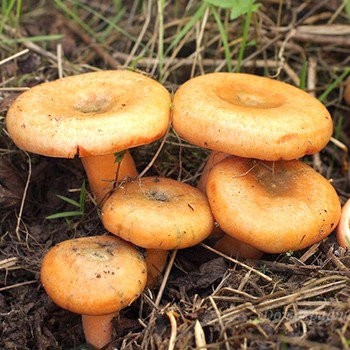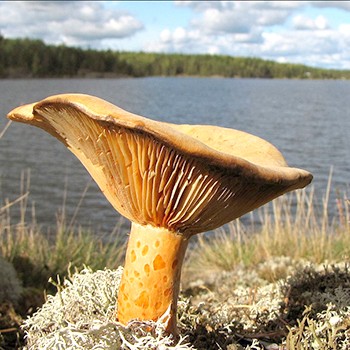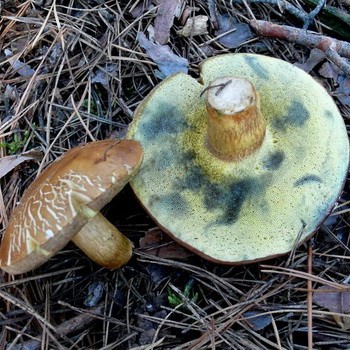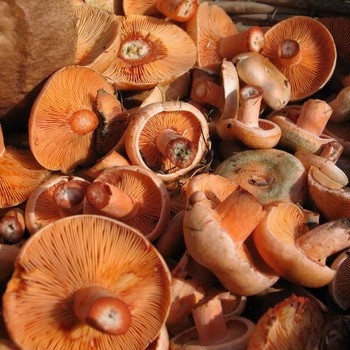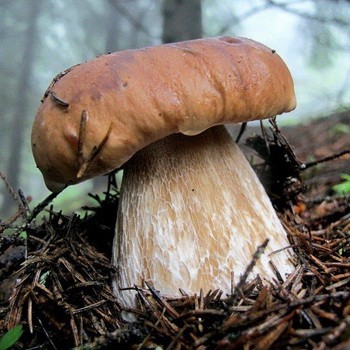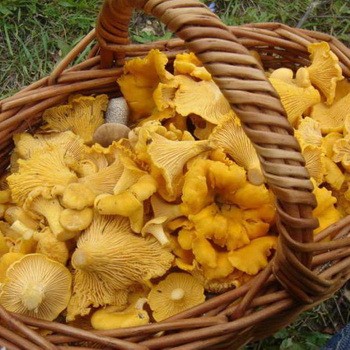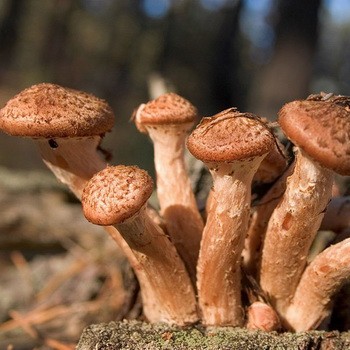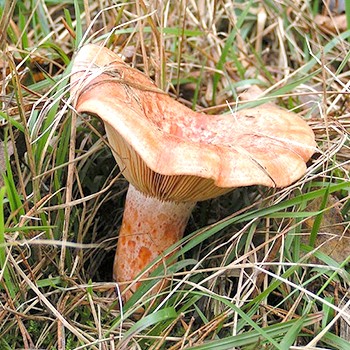Collection and proper use of camelina after frost
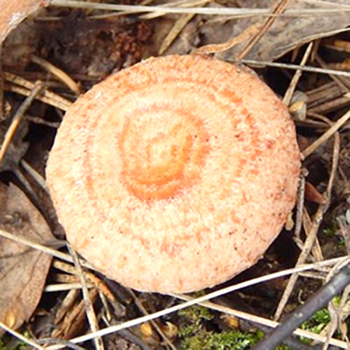
Mushroom pickers often tell how much fun they had when they gathered mushrooms after frosts. The foliage from the trees is almost opal, but the red-haired beauties continue to decorate clearings and clearings. The main thing is to take a closer look and raise the sticks of foliage with a stick.
Content
Do mushrooms grow mushrooms after frost?
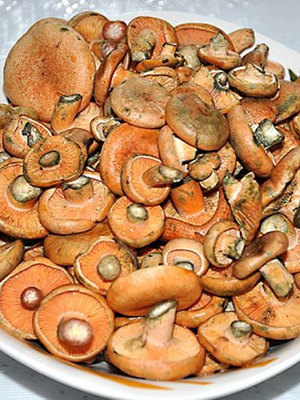
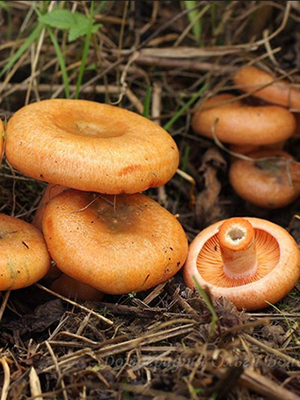
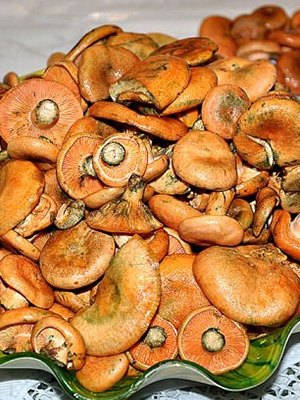
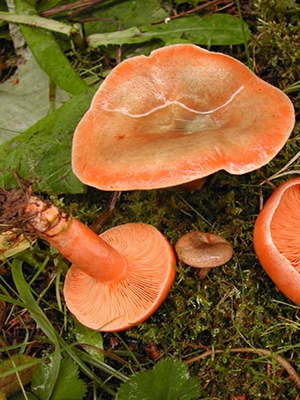
For many inexperienced mushroom pickers, the question arises: is it possible to collect mushrooms after the first frost? The earth does not have time to freeze after the first frost, and the mushrooms are hidden under the fallen leaves. Therefore, there is nothing to worry about collecting mushrooms in late autumn, because they also did not have time to freeze. Usually frosts are observed only at night, while during the day the temperature can reach + 10 ° С. Feel free to go on a "silent hunt" for tasty and healthy saffron milk mushrooms.
Is it possible to collect mushrooms after frosts, if they lasted several days? Usually these fruiting bodies are harvested before the first frost, while the weather is warm, or after 2-3 days. However, if the cold weather lasted more than 3-5 days and the air temperature remained below + 6 ° C, then it is not recommended to collect mushrooms, since they completely lose their taste properties.
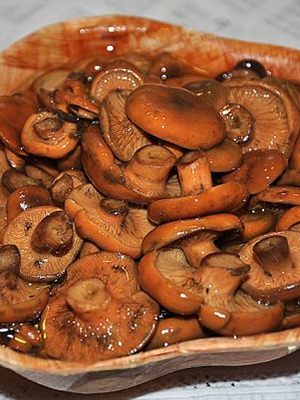
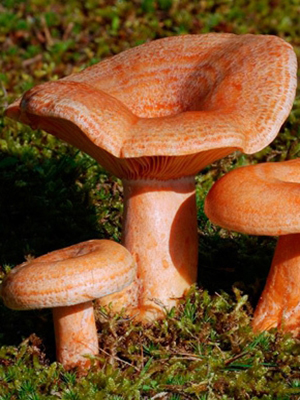
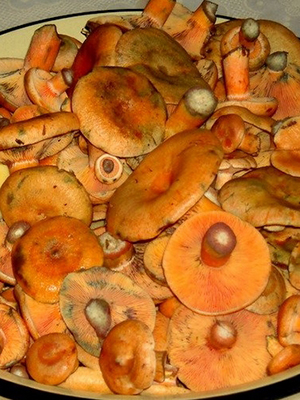
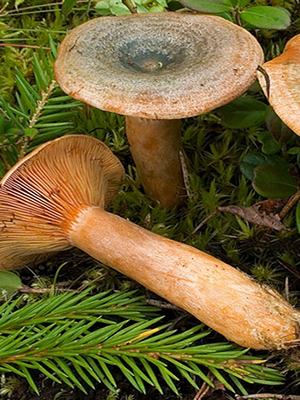
Mushrooms usually grow from mid to late summer (depending on territories and climatic conditions) until the first half of October. However, it also happens that mushrooms can be searched throughout November, if the weather is favorable. Do mushrooms grow after frosts on the soil? Note that the mushrooms do not stop their growth with the advent of the first frosts, since they are under a thick layer of foliage and moss.
However, as mentioned above, fruiting bodies lose their palatability. Is it possible to eat mushrooms after frost, if they have no taste? Experts say that after freezing, mushrooms not only lose their taste and aroma. It turns out that thawing fruit bodies sometimes accumulate substances that can cause food poisoning.
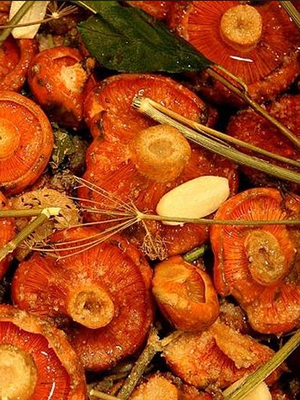
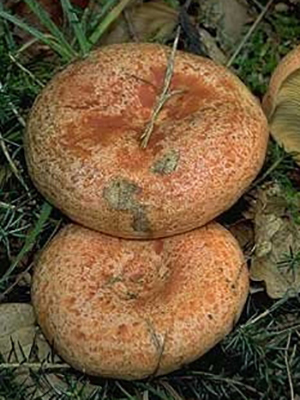
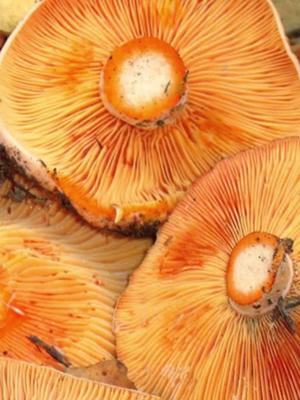
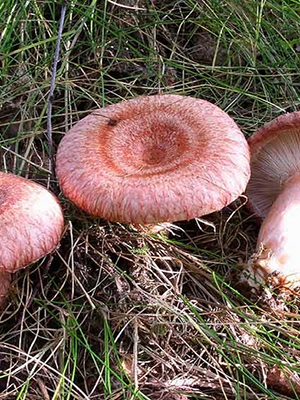
According to many mushroom pickers, mushrooms are considered noble fruiting bodies. Although they belong to the Mlecnik family, they still do not have bitterness. In addition, they can be eaten even raw, just sprinkled with salt. However, the collection and use of camelina after frost is still not recommended for the reasons described at the beginning. Only the most daring can collect mushrooms after frost and cook delicious dishes from them, especially if they are fried with the addition of sour cream and garlic, which give the mushrooms a piquant taste.
Why, after the past frosts, the inner part of saffron milk turns green?
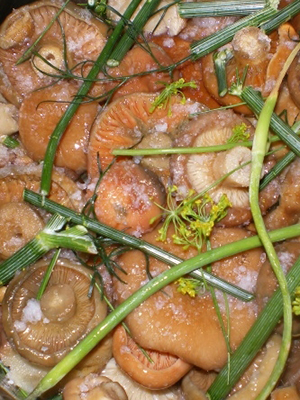
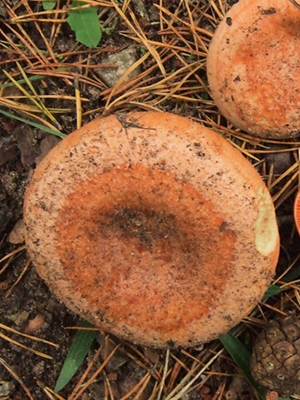
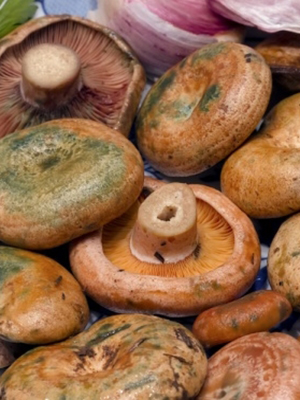
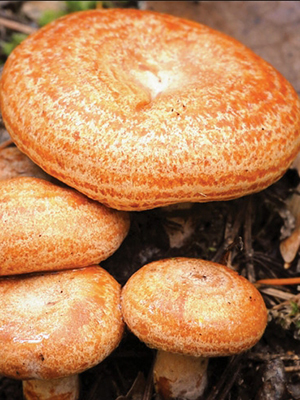
Sometimes after the past frosts the inner part of saffron milk turns green, why is this happening? Could this affect the further preparation of dishes? Usually, novice mushroom pickers are frightened by a greenish tint on a mushroom slice, but for saffron milk it is a common occurrence. They are very delicate, so even with the slightest touch of the plates the color turns green.
If the cold lasts for several days, then even under a layer of foliage, mushrooms begin to lose their natural color and even acquire a greenish tint. However, some are not afraid to pick these mushrooms. By adding garlic, as well as other spices and spices, during cooking, you can make up for the missing taste of forest mushrooms.
Although mushrooms are harvested both in the summer and in the fall, the reputation of late mushrooms is still entrenched in them. Autumn saffron mushrooms are stronger and much tastier than those harvested in summer.
Why do saffron mushrooms bitter after frosts and what to do?
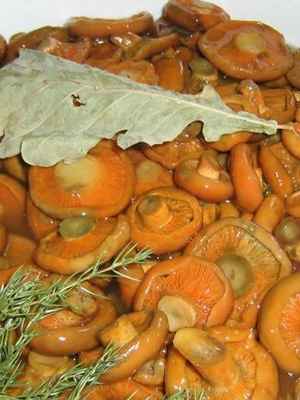
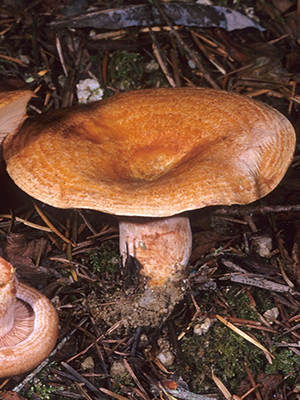
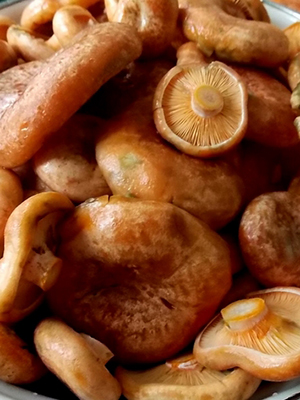
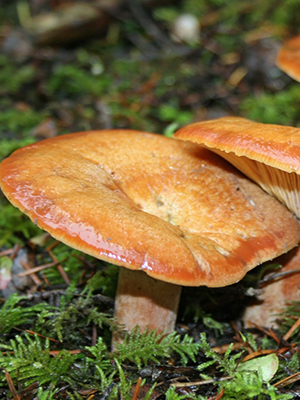
However, it is better to engage in the freezing of saffron mushrooms at home, and not leave this process to nature. The procedure of quick freezing in the freezer does not at all spoil the taste of fruiting bodies and does not affect their quality. Therefore, the best way to preserve fresh and tasty mushrooms is to simply freeze them.
For freezing, you can use not only raw mushrooms, but also past heat treatment. Some housewives say that after freezing, saffron mushrooms are bitter, why? A possible cause may be improper primary processing, during which some contamination remains in the mushrooms.
Another reason may be improper selection: old specimens of camelina were taken for freezing. In overgrown mushrooms, harmful toxins accumulate, which can cause bitterness.
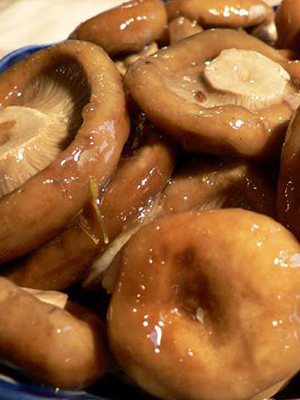
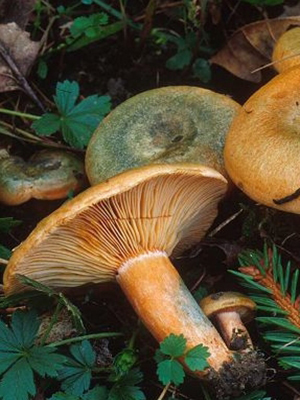
The next cause of bitterness in frozen mushrooms is the territory of their growth. A special advantage of these fruiting bodies is pine and spruce forests. These tree species, forming mycorrhiza with mushrooms, saturate them with a resinous and bitter taste.
Various factors affect whether saffron mushrooms are bitter after freezing. It is better to boil these fruit before freezing in salted water for 10 minutes, or to blanch for 3-5 minutes.
But what if the mushrooms were frozen fresh, and after thawing have a bitter taste? Then they need to be boiled in salted water with the addition of two pinches of citric acid. Then proceed to further cooking processes: pickling, salting or frying.
